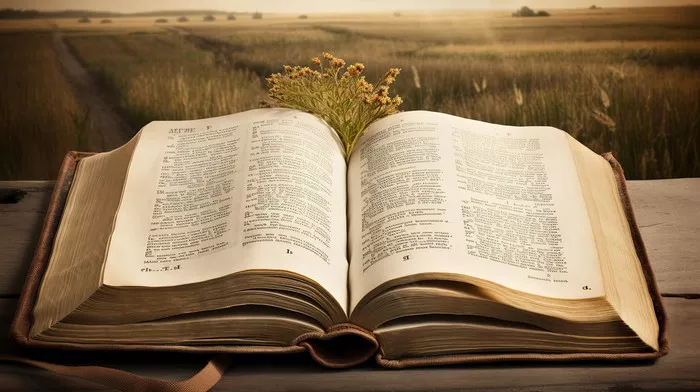Exodus 12 is a pivotal chapter in the Bible, detailing the final plague that God inflicts upon Egypt and the institution of the Passover. This chapter not only marks the liberation of the Israelites from centuries of bondage but also establishes a fundamental religious observance that continues to be celebrated by Jews around the world. This article provides an in-depth summary and analysis of Exodus 12, exploring its historical context, theological significance, and enduring legacy.
Historical Context
Exodus 12 takes place during a period of intense conflict between Moses, the leader of the Israelites, and Pharaoh, the ruler of Egypt. The Israelites had been enslaved in Egypt for 430 years, and despite a series of nine devastating plagues, Pharaoh continued to refuse their release. The chapter begins with God instructing Moses and Aaron to prepare the Israelites for the tenth and final plague—the death of the firstborn.
The Institution of Passover
God commands Moses and Aaron to establish a new calendar for the Israelites, with the month of Nisan being the first month of the year. On the tenth day of Nisan, each household is to select a lamb without blemish, a male of the first year, either from the sheep or the goats. The lamb is to be kept until the fourteenth day, when the entire assembly of the congregation of Israel is to kill it at twilight.
The Israelites are then instructed to take some of the lamb’s blood and apply it to the two doorposts and the lintel of their houses. This act of marking their homes with blood is a sign for God to “pass over” their houses and spare them from the impending plague. The flesh of the lamb is to be roasted with fire and eaten with unleavened bread and bitter herbs, symbolizing the haste of their departure and the bitterness of their bondage.
The Plague of the Firstborn
At midnight, the Lord strikes down all the firstborn in Egypt, from the firstborn of Pharaoh who sits on his throne to the firstborn of the captive in the dungeon, and all the firstborn of the livestock. This final, catastrophic plague breaks Pharaoh’s resistance, and he urgently summons Moses and Aaron during the night, telling them to take the Israelites and leave Egypt immediately. The Egyptians, in their fear and mourning, urge the Israelites to leave quickly, giving them silver, gold, and clothing as they go.
The Departure from Egypt
The Israelites depart from Rameses to Succoth, numbering about six hundred thousand men on foot, besides women and children. They carry with them unleavened dough, as they did not have time to let it rise. The chapter notes that the Israelites had lived in Egypt for 430 years, to the very day. This fulfillment of God’s promise to Abraham marks a significant moment in Israelite history.
The Passover Ordinance
God provides further instructions to Moses and Aaron regarding the observance of Passover. It is to be a lasting ordinance for generations to come. No foreigner, hired servant, or uncircumcised person is to eat of it, but a circumcised slave or a sojourner who wishes to keep Passover must be circumcised first. The lamb must be eaten in one house, and none of its flesh is to be taken outside. Additionally, none of its bones are to be broken, prefiguring the sacrificial Lamb of God, Jesus Christ, whose bones were not broken during His crucifixion.
See Also: Who Turned to Salt in the Bible and Why?
Theological Significance
Exodus 12 is rich with theological themes that resonate throughout the Bible. The Passover lamb serves as a powerful typology of Christ, the Lamb of God, who takes away the sin of the world (John 1:29). Just as the blood of the Passover lamb spared the Israelites from death, the blood of Christ spares believers from eternal death and offers salvation.
The institution of Passover also underscores the importance of obedience and faith. The Israelites had to trust and follow God’s instructions meticulously to be spared from the plague. This act of faith is echoed in the New Testament, where believers are called to trust in Christ’s sacrificial death for their redemption.
Enduring Legacy
Passover remains one of the most significant religious observances in Judaism. It commemorates God’s deliverance of the Israelites from slavery and His faithfulness to His promises. The Seder meal, which includes elements prescribed in Exodus 12, such as unleavened bread and bitter herbs, is a central part of the celebration. Each aspect of the Seder is imbued with symbolism, reminding participants of their ancestors’ suffering and God’s mighty acts of salvation.
For Christians, the themes of Passover are seen as fulfilled in the life, death, and resurrection of Jesus Christ. The Last Supper, which Jesus shared with His disciples on the night He was betrayed, was a Passover meal. During this meal, Jesus instituted the Eucharist, offering His body and blood as the new covenant for the forgiveness of sins (Luke 22:19-20). Thus, Passover and Easter are intimately connected in the Christian faith.
Conclusion
Exodus 12 is a chapter of profound importance, encapsulating themes of deliverance, faith, and divine intervention. The Passover not only marks the historical liberation of the Israelites from Egypt but also prefigures the ultimate deliverance from sin through Jesus Christ. Its observance continues to be a powerful reminder of God’s faithfulness and the call to live in obedience and trust. As both Jews and Christians reflect on this chapter, they find a deep well of spiritual significance that continues to inspire and instruct their faith journeys.


